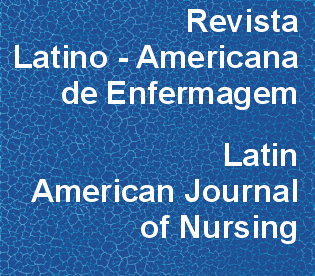Fatiga en pacientes con cáncer cuello rectal: superioridad y factores asociados
DOI:
https://doi.org/10.1590/S0104-11692012000300010Palabras clave:
Neoplasias Colorrectales, Oportunidad Relativa, Análisis de Regresión, Factores de Riesgo, Signos y SíntomasResumen
Los objetivos de este estudio fueron la identificación de la superioridad y los predictores de fatiga en pacientes con Cáncer Cuello rectal (CCR). Se trata de estudio seccional con 157 pacientes de ambulatorio con CCR (edad 60±11,7 años; 54% hombres; estadio cáncer IV 44,8%). La Escala de Fatiga de Piper - Revisada fue utilizada para evaluar fatiga. Datos sociodemográficos, clínicos, depresión, funcionalidad, dolor y sueño fueron evaluados. La asociación entre variables fue realizada por regresión logística. Fatiga fue reportada por 26,8% pacientes. Por la regresión logística se identificaron tres predictores: depresión (OR: 4,2; 95%IC 1,68-10,39), funcionalidad (OR: 3,2; 95%IC 1,37-7,51) y perjuicio del sueño (OR: 3,2; 95%IC 1,30-8,09). Cuando todos predictores estaban presentes, la probabilidad de ocurrencia de fatiga fue del 80%; cuando ninguno estaba presente, la probabilidad fue del 8%. La especificidad y sensibilidad del modelo fueron, respectivamente, 81,9 y 58,6%. Conociéndose la probabilidad de fatiga, por medio de la evaluación de depresión, funcionalidad y perjuicio del sueño, se vuelve posible la implementación de estrategias de prevención y tratamiento en la clínica.Descargas
Los datos de descarga aún no están disponibles.
Descargas
Publicado
2012-06-01
Número
Sección
Artículos Originales
Licencia
Los derechos de autor son propiedad exclusiva de la Revista Latino-Americana de Enfermagem (RLAE), transferidos a través de la Declaración de Transferencia de Derechos de autor (que está en el formulario individual de declaración) firmada por los autores. Para el uso de artículos, RLAE adopta la Licencia Creative Commons CC BY-NC atribución no comercial (abstracto o código completo de licencia). Con esta licencia es permitido acceder, descargar (download), copiar, imprimir, compartir, reutilizar y distribuir los artículos, desde que para uso no comercial y con citación de la fuente, dando los créditos de autor a la Revista Latino-Americana de Enfermagem. En tales casos, no se necesita permiso de los autores o editores.Cómo citar
Mota, D. D. C. de F., Pimenta, C. A. de M., & Caponero, R. (2012). Fatiga en pacientes con cáncer cuello rectal: superioridad y factores asociados. Revista Latino-Americana De Enfermagem, 20(3), 495-503. https://doi.org/10.1590/S0104-11692012000300010



